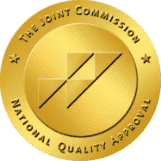What Is Paranoid Schizophrenia?
Read on to learn more about paranoid schizophrenia, along with its causes, risk factors, and how you can receive treatment.

Article Contents
What is Paranoid Schizophrenia?
The most prevalent form of schizophrenia is paranoid schizophrenia, which is also called schizophrenia with paranoia by many medical professionals. A person suffering from paranoid delusions may believe someone is observing them or attempting to harm them. Additionally, a person experiencing delusions could think that certain forms of media, like television or the internet, are communicating with them in a particular way.1
These thoughts and feelings can make a person extremely frightened and anxious, interrupt daily life, and make it difficult for them to engage in interactions with others at work or home, even with their family. According to studies, paranoia occurs in over 50% of patients with schizophrenia.2
What is the Difference Between Paranoid Schizophrenia and Schizophrenia?
What Are the Symptoms of Paranoid Schizophrenia?
A pattern of conduct known as paranoia occurs when a person acts on their feelings of mistrust and suspicion toward other individuals. Because paranoia is a symptom of schizophrenia, paranoid schizophrenia was formerly a subtype of this illness. Some of the symptoms of paranoid schizophrenia will be detailed below.
Delusions
Even in the face of overwhelming proof to the contrary, a person who has a delusional conviction typically won’t relent about what they see or hear. Paranoid delusions are frequently “persecutory,” implying that the person thinks someone is attempting to hurt them or negatively impacts their lives.
Hallucinations
These are imagined occurrences, usually in the form of something that a person hears or sees. Generally, someone who is hallucinating is unable to discern that what they are seeing is false. Hallucinations frequently contribute to delusions by providing the person with more “proof” to support their suspicion that someone is attempting to hurt or disturb them.
Disorganized Speech
Those with paranoid schizophrenia may experience disorganized speech. They may be unable to concentrate on one subject, which may lead to talking about several unnecessary issues. This may damage their relationship at work or in social gatherings.
Disorganized Behavior and Negativity
People diagnosed with paranoid schizophrenia may experience sporadic or impulsive behavior. They may sound happy in a moment and then change spontaneously to a sad mood the next minute or start exhibiting signs of dangerous behavior. They may also begin to have negative thoughts toward people or think everyone around them wants to hurt them.
Suicidal Thoughts
Paranoid schizophrenia patients often develop suicidal thoughts and feelings of worthlessness. They occur more frequently in untreated instances. Call your local emergency services as soon as you or someone you know has thoughts of harming themselves or taking their own life. They can put you in touch with a helpful mental health expert.
Causes and Risk Factors of Paranoid Schizophrenia
Brain abnormalities: These are problems that may indicate something in the brain is not working as it should, which can be from birth.
Childhood abuse: Childhood trauma that results from abuse may raise the risk of paranoid schizophrenia.
Low oxygen levels at birth: Exposure to certain chemicals from alcohol or drugs may reduce the oxygen levels at birth, later leading to paranoia.
Separation or loss of a parent at a young age: Trauma resulting from separation from parents may result in paranoid schizophrenia.
Virus exposure during infancy or before birth: Medical factors such as poor nutrition before birth and virus exposure during or before birth may cause paranoia in a person’s lifetime as well.
How Paranoid Schizophrenia Is Diagnosed
If at least two significant symptoms have been present for at least a month, a patient will generally be diagnosed with schizophrenia. These symptoms must hamper the person’s daily activities for them to be considered severe. A range of tests and examinations are necessary to diagnose schizophrenia.
A physician will examine their patient for:
Blood work and other medical test results
Medical history
Neuroimaging test results
Results from a physical exam
What Tests Are Done?
To help diagnose schizophrenia, a doctor may carry out imaging tests, brain activity testing, and blood, urine, or cerebrospinal fluid tests.
How is Paranoid Schizophrenia Treated?
A variety of strategies is necessary for long-term therapy to be effective. This mainly refers to drugs used in combination with other types of treatment. Hospitalization could be required in extreme circumstances if symptoms make it hazardous for you or for others to be around you.
What Medications or Treatments Are Used?
Antipsychotic medications can reduce severe symptoms, including hallucinations and delusions. These medications control the brain’s dopamine levels.
How Do I Manage Symptoms?
You can adopt the following options to help manage certain symptoms:
- Avoid circumstances that make you more stressed or anxious
- Adopt a balanced diet
- Make sure you get regular exercise. Serotonin, the “feel good” chemical in your brain, is increased by continuing to be physically active
- Maintain social gatherings
- Get enough rest. In persons with schizophrenia, a lack of sleep can make paranoia, delusions, and hallucinations worse
How Soon After Treatment Will I Feel Better?
People with schizophrenia who get therapy can progress to the point where their symptoms are barely noticeable or nonexistent. Lifelong therapy is necessary to stop the occurrence of subsequent disorders linked to the illness. However, the best person to ask for information if you have any concerns over how long it will be until you start to feel results is your healthcare practitioner.
How Can I Reduce My Risk or Prevent Paranoid Schizophrenia?

Because schizophrenia develops suddenly, it is difficult to prevent it or lower your risk of getting it.
It’s natural for someone to feel fearful and unable to trust people when they have paranoia that leads to delusions and hallucinations. Paranoid schizophrenia can cause a person to misinterpret others’ attempts to aid them instead as malicious or potentially harmful.
Paranoia may lead to schizophrenia, which can be treated and managed with therapy and medication. People with schizophrenia are more likely to suffer from its symptoms if they are not treated or if there are lengthy delays or gaps in care.4
Get Treatment for Paranoid Schizophrenia at Iris Healing®
If you or a loved one are diagnosed with paranoid schizophrenia or show signs of paranoia, Iris Healing® can help every step of the way. You can check our website to be informed of our treatment options. Our trained professionals will guide you on your way to recovery. Contact us today if you or a loved one are ready to start receiving treatment.
Resources
- https://www.medicalnewstoday.com/articles/192621
- https://www.healthline.com/health/schizophrenia/paranoid-schizophrenia
- https://www.mayoclinic.org/diseases-conditions/schizophrenia/diagnosis-treatment/drc-20354449#:~:text=Medications%20are%20the%20cornerstone%20of,affecting%20the%20brain%20neurotransmitter%20dopamine.



















